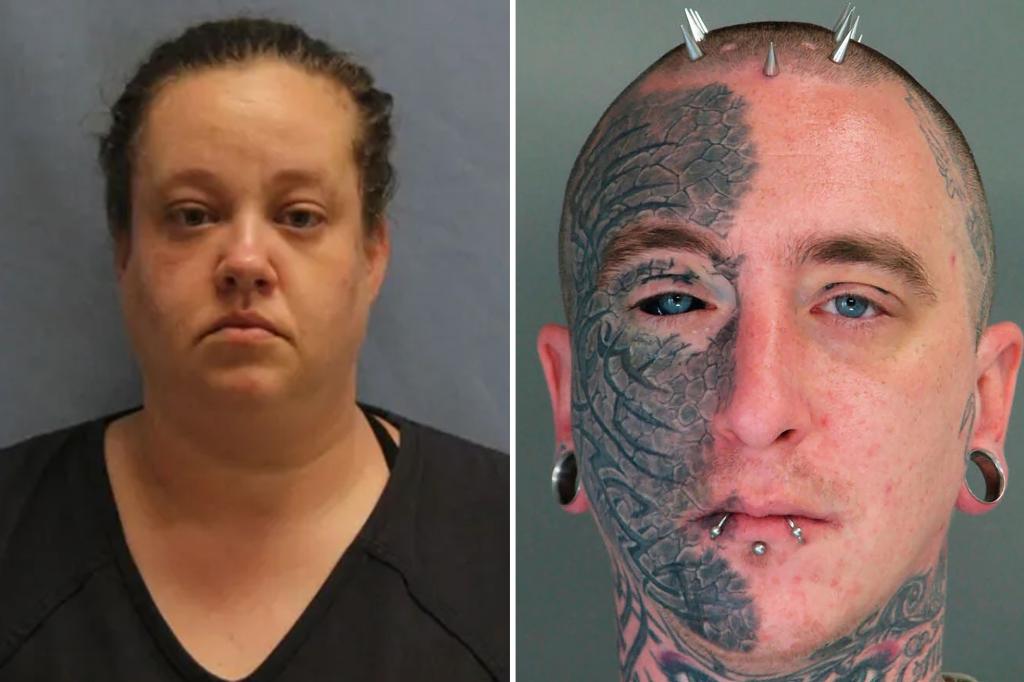The grotesque case of Candace Chapman Scott, a former mortuary worker in Little Rock, Arkansas, has sent shockwaves through the nation, exposing a dark underbelly of illegal trade in human remains. Scott, 37, was sentenced to 15 years in federal prison for her role in a macabre scheme involving the theft and sale of body parts, including those of fetuses, from the University of Arkansas for Medical Sciences Anatomical Gift Program. Her criminal activities spanned from October 2021 to July 2022, during which she trafficked a horrifying array of human remains – skulls, brains, limbs, organs, and even a belly button – to Jeremy Lee Pauley, a self-proclaimed “oddities collector” from Pennsylvania. The judge presiding over the case described Scott’s crimes as “some of the worst I’ve ever seen,” reflecting the profound moral repugnance elicited by her actions.
The illicit transactions between Scott and Pauley, who connected through a Facebook group dedicated to the discussion of body part sales, amounted to over $10,000 for 24 boxes of stolen remains. This grim revelation exposed not just an isolated instance of depravity, but a disturbing national network involved in the trafficking of human body parts. Investigations revealed connections to similar cases of body snatching at prestigious institutions like Harvard Medical School, highlighting the widespread nature of this illicit market. The discovery of additional body parts at Scott’s residence cemented her culpability, confirming her active role in desecrating the deceased and betraying the trust placed in her profession. Her chilling admission to misrepresenting cremated remains further amplified the heinous nature of her crimes, adding another layer of anguish for grieving families.
One of the most heart-wrenching aspects of this case revolves around the tragic story of “Baby Lux,” whose remains were among those callously trafficked by Scott. The infant, whose name signifies “light sent,” became a symbol of the profound violation inflicted upon the families of the deceased. The revelation that the ashes returned to Baby Lux’s parents were not actually his own added an unbearable dimension to their grief, transforming a time of mourning into a horrific nightmare. Doneysha Smith, Baby Lux’s mother, shared her profound heartbreak with the court, describing the unimaginable pain of knowing her son’s remains were treated like mere commodities, shipped across state lines like an ordinary package.
The emotional impact of this case extended beyond the victims’ families, reaching even the judge presiding over the sentencing. Judge Brian S. Miller was visibly moved, shedding tears before delivering Scott’s sentence. This display of emotion underscored the gravity of the crimes and the profound sense of violation they represented. Scott herself expressed remorse and apologized for her actions, but her words could hardly offer solace to those whose lives she had irrevocably damaged. The FBI, recognizing the profound impact of these crimes, described them as “truly incomprehensible and detestable,” emphasizing the agency’s commitment to pursuing justice for the victims and their families.
The ripple effects of this case extend beyond Arkansas, implicating Jeremy Lee Pauley, the recipient of the stolen remains. Pauley, a 42-year-old with distinctive facial tattoos and piercings, awaits sentencing in Pennsylvania after pleading guilty to conspiracy and interstate transportation of stolen property. His participation in this gruesome trade underscores the demand side of the equation, highlighting the existence of a market for human remains that fuels these horrific acts. The prosecution of both Scott and Pauley serves as a stark warning to others involved in this illicit trade, emphasizing the legal consequences of such egregious violations.
The case of Candace Scott serves as a chilling reminder of the vulnerability of the deceased and the potential for exploitation within the death care industry. It highlights the importance of stringent oversight and ethical practices within institutions entrusted with the care of human remains. The profound emotional toll on the families of the victims underscores the need for accountability and justice in cases of this nature. The sentencing of Scott and the pending prosecution of Pauley represent a step towards that justice, offering a glimmer of hope that such heinous acts will be met with the full force of the law. However, the scars left by these crimes will undoubtedly linger, a permanent testament to the profound violation inflicted upon the deceased and their grieving families.

